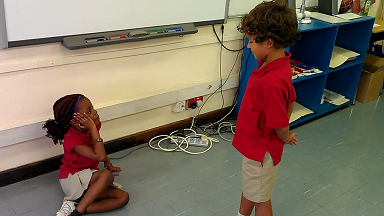The Helen O' Grady Drama Academy In Lagos Islands, Nigeria, Inspires And Encourages Children, And, Adults From A Diverse Cross-Section Of Nationalities And Cultures. Using An International Curriculum, The Academy Aims To Develop Confidence, Self Esteem, Communication And Performance Skills. See Our Website: WWW.DRAMAAFRICA.COM
Thursday, December 12, 2013
Friday, November 22, 2013
Expression Mouvement , confidence, imagination at it s best
Today , I experience moments of joy as a Helen o Grady drama teacher .....fun fun fun....my talented stars brilliantly expressed strong and light mouvements in our dance section and rendered the no meat thanks improvisation with such dexterity .... I was so proud of them...there is nothing like expression , drama, and confidence ..... Watch them in those fantastic pictures
drama,kids,Lagos,acting,performing,classes
Drama lagos confidence Victoria island Nigeria theater classes tutoring teaching drama
Monday, September 9, 2013
SPAN seeks to affect lives positively
SPAN AWARD AND REWARD SEASON OFFERS A SPECTACULAR SCHOLARSHIP FOR 15 PEOPLE TO BE TRAINED FOR A YEAR!!! THEY WILL BE SELECTED AFTER AN AUDITION WHICH IS SCHEDULED TO HOLD ON MONDAY (9th), TUESDAY (10th), THURSDAY (12th) AND FRIDAY (13th) FROM 11AM-4PM. COME PREPARED WITH A 1MIN SOLO PIECE(DANCE)! PLS TELL YOUR FRIENDS...AND COME PREPARED! Call 017767726 or 08038363991 for more details...
Thursday, September 5, 2013
Drama at American International School Lagos
its the first class of the new term at A.I.
S.L and the children are all fired up....scenes of their snippet.
S.L and the children are all fired up....scenes of their snippet.
Wednesday, August 28, 2013
THIS DAY NEWSPAPER REVIEW ON THE SUMMER CAMP 2013
Newspaper review on the recently concluded HOG lagos island 2013 Summer camp by THIS DAY NEWSPAPER.....http://www.thisdaylive.com/
Sunday, August 25, 2013
Benefits of Drama in school
The Benefits of Drama Education
Research reveals the positive impact of drama on a student’s
Physical, Emotional, Social, and Cognitive Development
♦ Self-Confidence: Taking risks in class and performing for an audience teach students to trust their
ideas and abilities. The confidence gained in drama applies to school, career, and life.
♦ Imagination: Making creative choices, thinking of new ideas, and interpreting familiar material in
new ways are essential to drama. Einstein said, “Imagination is more important than knowledge.”
♦ Empathy: Acting roles from different situations, time periods, and cultures promotes compassion and
tolerance for others’ feelings and viewpoints.
♦ Cooperation/Collaboration: Theatre combines the creative ideas and abilities of its participants.
This cooperative process includes discussing, negotiating, rehearsing, and performing.
♦ Concentration: Playing, practicing, and performing develop a sustained focus of mind, body, and
voice, which also helps in other school subjects and life.
♦ Communication Skills: Drama enhances verbal and nonverbal expression of ideas. It improves
voice projection, articulation of words, fluency with language, and persuasive speech. Listening and
observation skills develop by playing drama games, being an audience, rehearsing, and performing.
♦ Problem Solving: Students learn how to communicate the who, what, where, and why to the
audience. Improvisation fosters quick-thinking solutions, which leads to greater adaptability in life.
♦ Fun: Drama brings play, humor, and laughter to learning; this improves motivation and reduces stress.
♦ Emotional Outlet: Pretend play and drama games allow students to express a range of emotions.
Aggression and tension are released in a safe, controlled environment, reducing antisocial behaviors.
♦ Relaxation: Many drama activities reduce stress by releasing mental, physical, and emotional tension.
♦ Self-Discipline: The process of moving from ideas to actions to performances teaches the value of
practice and perseverance. Drama games and creative movement improve self-control.
♦ Trust: The social interaction and risk taking in drama develop trust in self, others, and the process.
♦ Physical Fitness: Movement in drama improves flexibility, coordination, balance, and control.
♦ Memory: Rehearsing and performing words, movements, and cues strengthen this skill like a muscle.
♦ Social Awareness: Legends, myths, poems, stories, and plays used in drama teach students about
social issues and conflicts from cultures, past and present, all over the world.
♦ Aesthetic Appreciation: Participating in and viewing theatre raise appreciation for the art form. It
is important to raise a generation that understands, values, and supports theater’s place in society.
Subscribe to:
Comments (Atom)










































+2.jpg)









